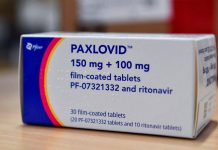Irritable bowel syndrome (IBS) is one of the common gastrointestinal disorders characterized by the symptoms of abdominal pain or cramp, bloating, gas, and diarrhea or constipation.
Since IBS is a chronic condition, you will need to manage it long-term. Some people control their IBS symptoms by changing diet and lifestyle, and managing stress. Severe symptoms of IBS can be treated with medicines.
There are a few types of medicines available for treating IBS. Some only address a particular digestive symptom, while others are designed to address the overall dysfunction, offering complete relief.
Generic Drugs for IBS
Medicines specific to IBS include alosetron, eluxadoline, and rifaximin.
Alosetron: Sold under the brand name Lotronex, alosetron was the only prescription drug approved to treat IBS. It works by blocking messages from the gut to the brain and can help relieve stomach pain and slow your bowels to relieve diarrhea, according to WebMD. However, the drug has a few serious side effects.
Eluxadoline: This drug is available under the brand name Viberzi. It signals the nervous system to help stop bowel spasms and cramps.
Rifaximin: An antibiotic that changes the amount of bacteria in the intestines. Approved by the FDA in 2015, rifaximin is advised for the treatment of IBS. The drug can control IBS symptoms for as long as 6 months.
Loperamide: Sold under the brand name Imodium, loperamide is an antidiarrheal drug. It is available over-the-counter. Although loperamide is not an IBS-specific drug, it can improve diarrhea for people with IBS.
Antidepressants: Tricyclic antidepressants are often advised to patients with severe IBS symptoms because they can help reduce abdominal pain, especially if patients also have depression.
Anxiolytics: If anxiety triggers your IBS symptoms, your doctor may advise anxiolytics, such as clonazepam, diazepam, or lorazepam.
Others: Doctors may also advise mast cell stabilizers that block the release of histamine, a chemical responsible for inflammation. Researchers are studying whether K-opioid antagonists, such as asimadoline, could help reduce stomach pain and diarrhea in IBS patients.
There are various IBS generic drugs, but it is important to find the right medicine depending on the IBS symptoms you have. In some patients, IBS drugs may cause serious side effects. Luckily, generic drugs are not the only solution available. OTC remedies, dietary and lifestyle modifications, and psychological therapies have also been found effective at treating IBS.























